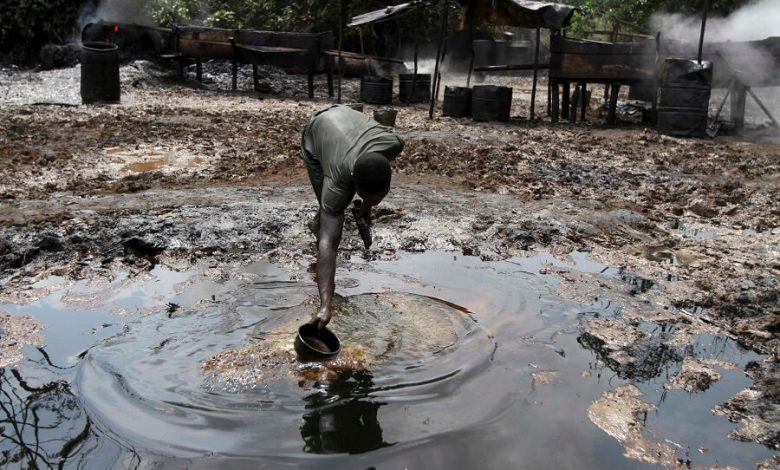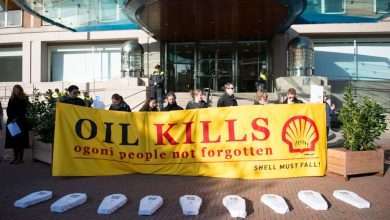Seven UN Special Rapporteurs and Mandate Holders Flag Human Rights Violations Linked to Oil Extraction in the Niger Delta – UNPO Report

A group of seven UN Special Rapporteurs and mandate holders issued Joint Allegation Letters (JALs) to Nigeria, the United Kingdom, France, Italy, the United States, the Netherlands, and several multinational oil corporations operating in the Niger Delta, raising concerns over long-standing human rights violations linked to oil extraction, environmental degradation, and recent corporate divestment processes. The JALs follow years of advocacy and documentation by affected communities and civil society organisations, among them the UNPO. Sustained efforts have consistently highlighted the persistent pattern of pollution, harmful business practices, and the lack of effective remedy for Niger Delta’s Indigenous communities, including the Ogoni and Ijaw.
The Niger Delta, a region in southern Nigeria, has long been marked by severe environmental destruction resulting from decades of oil exploitation. The ongoing human rights violations in the Niger Delta, including against the Ogoni, largely stem from chronic oil spills, gas flaring, and contamination that destroys water sources, farming, and fishing, leading to a collapse of traditional livelihoods. Much of this oil extraction occurs on ancestral lands without communities’ Free, Prior, and Informed Consent (FPIC) or consultation.
For decades, communities have led sustained efforts to hold these companies accountable, including landmark legal actions such as the case brought by Ogoni communities against Shell in the UK High Court, addressing the severe environmental damage caused by recurring oil spills. Instead, in recent developments major multinational oil companies have divested from their onshore operations without implementing adequate cleanup or remediation measures. As these companies transfer licenses to new operators, communities continue to report enduring ecological and socio-economic consequences of unremedied pollution. Attempts by local leaders, environmental defenders, and community associations to seek accountability have been met with barriers, including lack of access to information, ineffective environmental monitoring, and insufficient avenues of legal redress.
In each of the JALs, experts from various UN Special Procedures and Working Groups voiced serious alarm regarding the escalating environmental injustice and the lack of meaningful redress for communities impacted in the Niger Delta. These experts included the Special Rapporteurs focused on human rights related to hazardous substances, climate change, a healthy environment, food, and health, as well as the Working Groups on business and human rights and on the rights of peasants and rural workers.
In their communications to governments, the experts particularly emphasised that inadequate remediation and the absence of proper oversight pose serious risk to the rights to life, health, water, food, and a clean and sustainable environment. They warn that the current divestment processes, especially as they are carried out without robust human-rights safeguards, could further entrench impunity and undermine efforts to secure justice for victims of environmental harms.
The JALs further highlights serious concern over the lack of transparency and due diligence in the divestment of onshore assets by multinational oil companies, noting that these transactions involve corporations accused of contributing to widespread environmental degradation in the region. The timing and structure of these divestments raise troubling questions, as the failure to remediate polluted land and waterways directly violates international human rights standards. In this light, the Special Procedures call on the Governments of Nigeria, the United Kingdom, the United States, France, Italy, and the Netherlands to, inter alia, ensure that businesses under their jurisdiction respect their human rights obligations and guarantee that divestment arrangements include comprehensive cleanup, restoration, and access to remedy for impacted communities.
In the communications addressed to the multinational corporations, namely Eni S.p.A., ExxonMobil Corporation and TotalEnergies SE, UN Human Rights Mandate Holders raised serious concerns about the human rights impacts of historic and ongoing pollution, insufficient remediation efforts, and the threat of further harm resulting from incomplete environmental assessments prior to divestment. They notably highlight the contamination of drinking water sources, the loss of fisheries and farmland essential to local economies, and the heightened health risks caused by prolonged exposure to hydrocarbons and toxic substances. As a result, local communities have faced worsening food insecurity, declining public health, and the deterioration of traditional livelihoods which humanitarian interventions have not been able to address.
The Special Procedures urge the companies to take adequate measures to fulfil their due diligence obligations and “mitigate and remedy the adverse human rights impacts” of their operations prior to divestment. They importantly acknowledge that past failures to remediate pollution constitute serious violations and that affected land, rivers, and ecosystems must be restored to enable communities to reclaim their rights, livelihoods, and cultural practices.
The UNPO welcomes the JALs as a necessary step towards accountability, particularly in addressing the long-standing environmental injustice faced by communities in the Niger Delta. Decades of pollution have endangered lives, destroyed livelihoods, and violated fundamental human rights. These harms fall disproportionately on communities that already lack political representation and influence, making them vulnerable to exploitation and neglect. As an organisation representing unrepresented people globally, the UNPO stresses that such communities are often the first to bear the consequences of harmful business practices and the last to receive remedy. We therefore call on all implicated governments and corporations to fulfil their obligations under international human rights law and ensure full protection, restoration, and justice for the Niger Delta’s affected peoples. The UNPO will continue to raise concerns in international forums and advocate for meaningful action to address the urgent challenges faced by the region’s communities.




